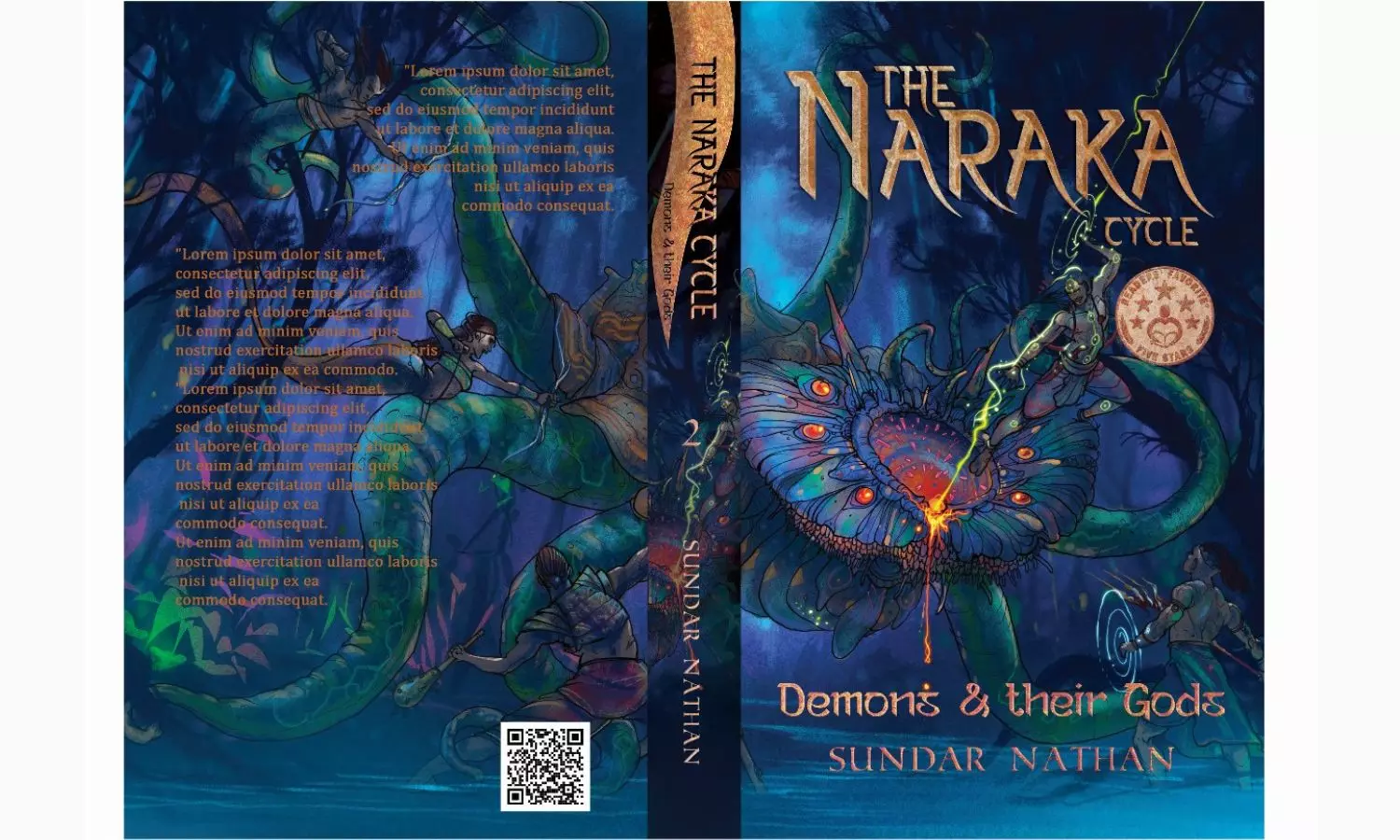Top 5 Indian Mythological Authors

Hyderabad: India's mythology goes far beyond the Ramayana and Mahabharata, offering a rich tapestry of love, battles, honor, and morality. Many Indian authors have created captivating stories for mythology lovers. Here are some of the top mythology books that will draw you in and capture your heart.
1) Author Sundar Nathan: Sundar Nathan's love for mythology began in childhood, inspired by stories from The Ramayana and The Mahabharata shared by his grandmother and mother. His latest book, "Demons and Their Gods," is part of The Naraka Cycle, a nine-book mytho-thriller series. Starting with "Ravan’s Trial," the series delves into Ravan's early life, relationships, magical abilities, and devotion to Lord Shiva. "Demons and Their Gods" transports readers into a world where celestials, hybrids, and demons coexist, exploring themes of identity, power, and morality. Nathan's intricate storytelling blends ancient myths with modern relevance, making it a compelling read for mythology enthusiasts and narrative lovers alike.
2) Author Chitra Banerjee: An award-winning author and poet explores themes of the immigrant experience and South Asian perspectives in her book "The Palace of Illusions." Retelling the Mahabharata from Draupadi's viewpoint, the story follows her journey from birth to marriage with five Pandava brothers. Draupadi grapples with her roles as queen and wife in a male-dominated society, enduring public humiliation and years of exile. Despite her loyalty to her husbands, she struggles with her love for Karna. The writing is beautifully simple, providing depth to Draupadi's character and her complex relationship with Karna, offering readers a fresh perspective on this timeless tale.
3) Author Devdutta Patnaik: Devdutt Pattanaik, originally trained in medicine and having worked in healthcare for fifteen years, shifted his career to focus on mythology. He has authored over 1,000 articles and 50 books exploring the relevance of sacred stories, symbols, and rituals in today's world. In his book "Sita," Pattanaik offers a fresh perspective on the Ramayana by delving into the character's motivations and the human psyche. He argues that those who see the Ramayana as simplistic may not fully grasp its depth, providing new insights into Ram's story. "Sita" is informative and engaging, presenting ideas and narratives rather than a comprehensive encyclopedia. Together with "Jaya," it forms a compelling duo recommended for those familiar with the epics, though it may not be the best starting point for readers new to these narratives.
4) Author Koral Dasgupta: Koral Dasgupta is a versatile author, academic, columnist, painter, and speaker. Her diverse literary works range from academic non-fiction to gripping relationship dramas. In her book "Ahalya," Dasgupta intricately explores the life of Ahalya, cursed by Sage Gautama due to her relationship with Indra. Through empathetic storytelling, Dasgupta sheds light on Ahalya's journey from creation by Brahma to her ascetic life with Sage Gautama, finding solace in nature amid solitude. Her lyrical prose and vivid imagery immerse readers in a mystical world, touching on themes of desire, spiritual evolution, and the eternal cycle of life and death. "Ahalya" also draws parallels with themes from the great Indian epics, enriching the narrative with cultural depth and relevance.
5) Author Amish Tripathi: Amish Tripathi, known for his mythological fiction, has gained fame with bestsellers like The Shiva Trilogy and the Ram Chandra Series. "The Immortals of Meluha," a blend of Indian mythology and fiction, follows Shiva's quest to fulfill his destiny with curiosity and honor, adding depth to the narrative. However, the romance between Sati and Shiva can feel superficial, akin to Bollywood, sometimes clashing with Sanskrit terms. Despite this, the novel sets up an intriguing plot continuing in "The Secret of the Nagas." Tripathi's imaginative approach offers philosophical depth and creativity, making "The Immortals of Meluha" a compelling read for fans of Indian mythology.
As Indian literature continues to evolve, these top mythological authors play a crucial role in preserving and revitalizing ancient myths for contemporary audiences.

